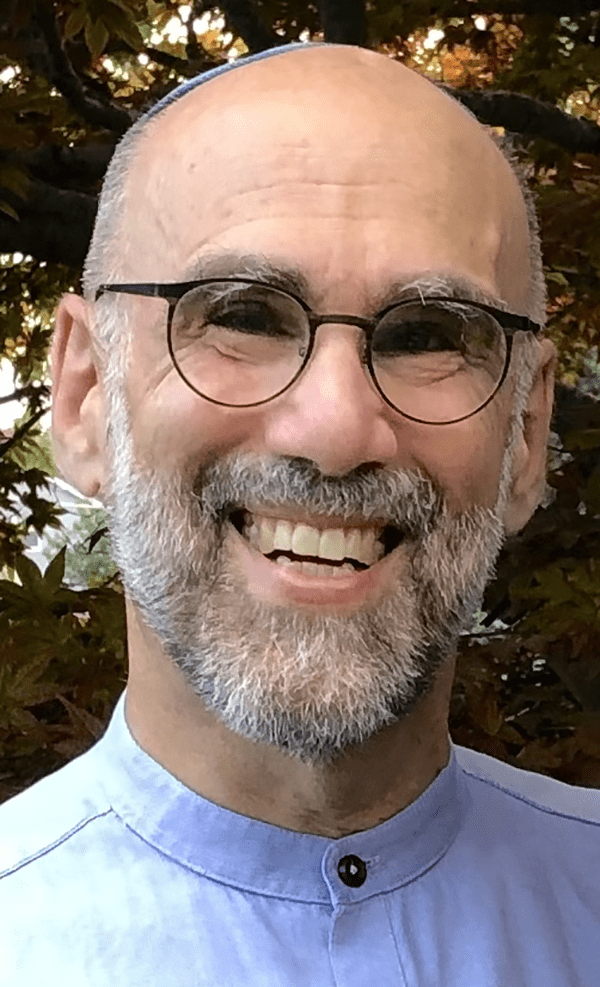June 2023
What do we say in response to good tidings? We might think “mazal tov!” or “shehecheyyanu” (the first bracha of this series), and that’s fine. For good tidings that don’t “qualify” for either of those — mazal tov is not a bracha; shehecheyyanu is usually reserved for notable events, particularly life cycle celebrations — there is a bracha.
בָּרוּךְ אַתָּה אֲדֹנָי אֱלֹהֵינוּ מֶלֶךְ הָעוֹלָם הַטּוֹב וְהַמֵיטִיב
baruch atta adonai eloheinu melech ha’olam hatov v’hameitiv
We praise You, Adonai our God, Sovereign of the universe, for being good and generous.
When we feel the need to express appreciation for good things that happen when there may be no specific someone to thank, thank Adonai! It could be learning of a friend’s recovery from illness, a relative’s new job, a retirement, college graduation …whatever good tidings you hear about.
Think of this bracha as the response to getting a wedding invitation, and shehecheyyanu as the bracha we say at the wedding itself.
A related bracha — “gomeil” — is for events that could have led to injury or worse but didn’t:
בָּרוּךְ אַתָּה אֲדֹנָי אֱלֹהֵינוּ מֶלֶךְ הָעוֹלָם הַגּוֹמֵל לְחַיָּבִים טוֹבוֹת שֶׁגְּמָלַנִי כֹּל טוֹב
baruch atta adonai eloheinu melech ha’olam, hagomel li-khayavim tovot sheg’malani kol tov.
Blessed are You, Adonai, our God, Sovereign of the universe, who bestows goodness upon the accountable, for bestowing all that is good upon me.
When this bracha is recited in public (often in conjunction with an aliyah to Torah), others in the room respond with:
אָמֵן. מִי שֶׁגָמָלֵך / שֶׁגָמָלְךָ כֹּל טוֹב הוּא יִגְמְלֵךְ / יִגְמָלְךָ כֹּל טוֹב סֶלָה
Amen. Mi sheg’maleich/sheg’malcha kol tov, hu yig’maleich/yig’malcha kol tov, selah.
Amen, May the One who has bestowed goodness upon you, bestow every goodness upon you forever.
Where the first bracha above is meant to be a spontaneous response to good news, the second (and its response) speaks to a community recognition of escape or recovery from danger. Might be an illness, risky surgery, car crash, a fall down the stairs; in an earlier era of flight, it was routinely recited after a voyage by air. It is customary for new mothers to recite this bracha in community.
Let’s hope we have plenty of opportunities to recite “hatov v’hameitiv,” and, should we find ourselves in a circumstance appropriate for “gomeil,” that we accept the embrace of community by reciting it in shul.



